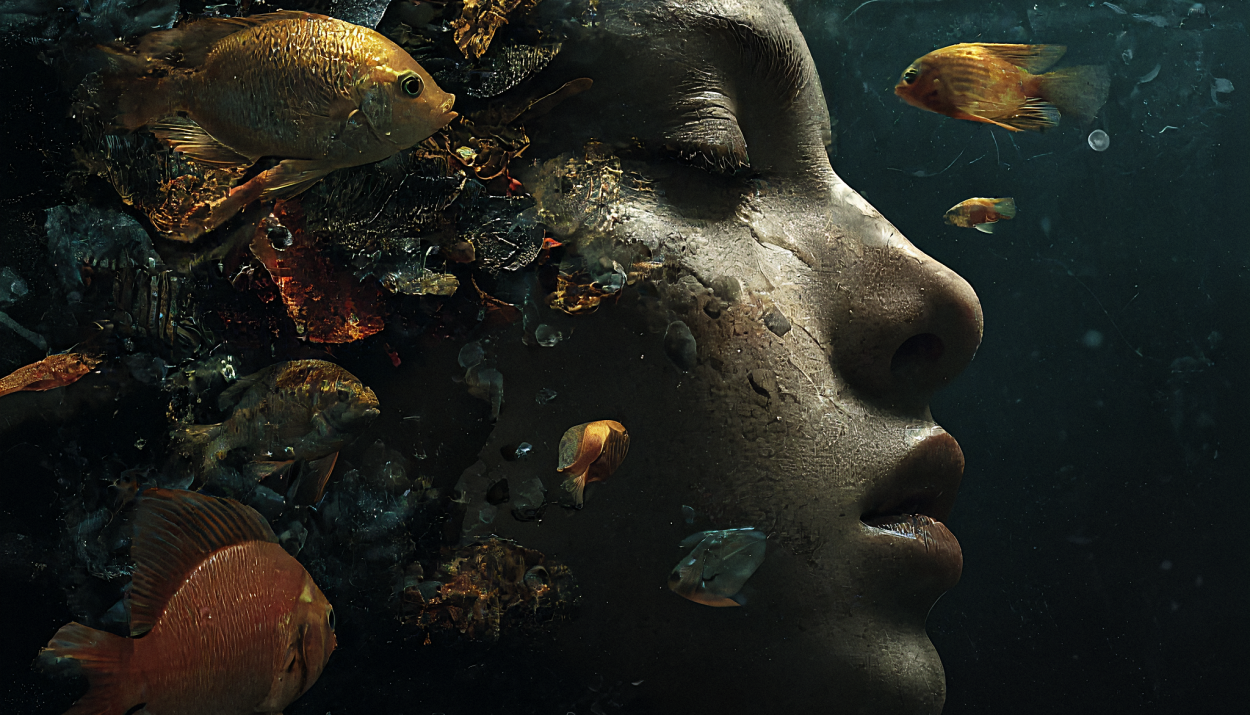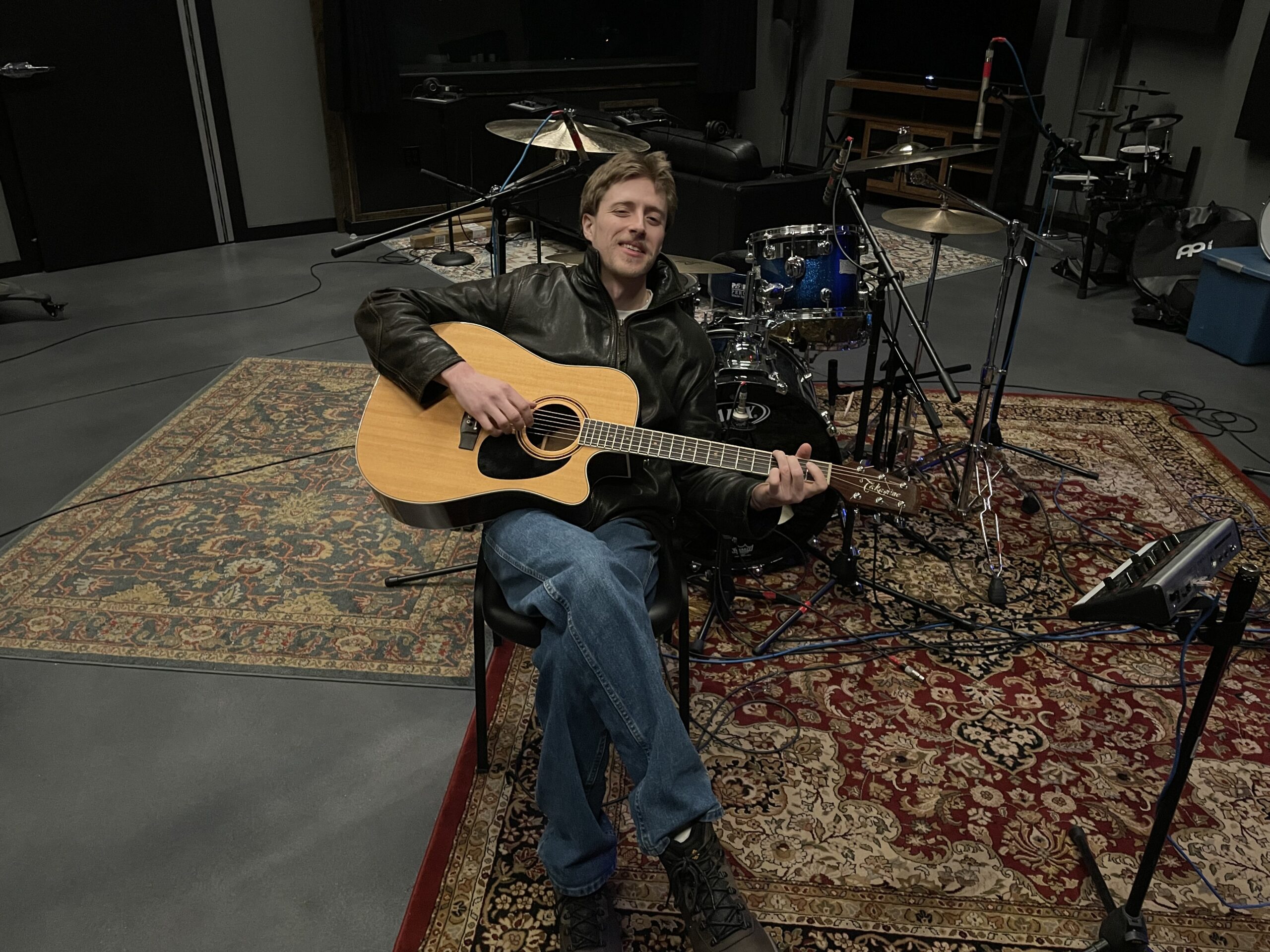Sometimes, an artist emerges not just to add to the noise of modern music but to reshape how we listen. Belgian artist Florent C. arrives as one of those rare visionaries, as he blurs the borders between darkness and light, between the pulse of the city and the calm of the sea. His new album, “Underwater City,” released on September 7th, is an atmospheric descent into a world where emotions echo like sonar waves beneath a shimmering urban skyline.
Chancing on his album, I realized Florent C. doesn’t chase trends; he constructs his world. Think of him as a director of an invisible film, one where each track serves as a scene, each sound a moving image. From dark pop undertones to cinematic electronic layers, the album captures the contradictions of modern existence: isolation amid connection, chaos wrapped in beauty, and serenity hiding under the surface of noise. As Florent himself seems to suggest through his work, “The deeper you dive, the more you find yourself reflected in the water.”
With “Perfect Disaster,” the album opens with a hypnotic beat that instantly sets the perfect tone. The vocals cut through like a confession whispered in a storm—controlled yet trembling with raw emotion. The song plays with contradiction: beauty tangled in wreckage, perfection within ruin. Production-wise, layers of bass and reverb give it a haunting spaciousness, as if it’s being sung from the bottom of a flooded room.
Here, Florent turns introspection into rhythm. “Phonetic Dreams” pulsates with crisp percussion and subtle distortion, symbolizing the hazy blur between reality and imagination. The vocal delivery on this track is cool, distant, and deliberate—a dream half-remembered upon waking. The synth work is immaculate, almost breathing, expanding and contracting like lungs underwater.
The title track, “Underwater City,” is the album’s emotional nucleus. A brooding electronic soundscape carries the ethereal voice through waves of reverb and echo, as Florent paints an image of a metropolis submerged in feeling, where every emotion becomes liquid. The production is one of a kind: dark, moody, and beautiful. It’s beautiful and claustrophobic, the perfect metaphor for modern existence.
One of the album’s most intimate songs, “He Never Talked,” drifts toward minimalism. A fragile piano riff carries the vulnerable vocals, which balance pain and restraint with haunting precision. The lyrics evoke unspoken words, emotional distance, and the quiet weight of things left unsaid. The understated arrangement leaves space for the voice to ache—and it does, beautifully.
Sharp, provocative, and rhythmically experimental, “Guinea Pig” explores themes of control, experimentation, and rebellion. The beat snaps like a heartbeat under surveillance. There’s a sense of irony in the delivery, while the dark electronic layering adds an edge of futuristic anxiety. It’s a song that feels like it’s watching you back.
Chill in tone but emotionally piercing, “Ice-Cold” showcases Florent’s ability to merge dark pop minimalism with cinematic emotion. The vocal performance feels detached at first but soon burns with a subtle desperation that creeps under your skin. Metallic percussion and pulsing synth bass anchor the song in a nocturnal groove that’s intoxicatingly cool.
“Where Do We Go” is the album’s reflective core—a question turned melody. Florent’s tone softens here, drifting into a space between sadness and surrender. The lyrics touch on uncertainty and the search for meaning amid chaos. The instrumentation feels lighter, almost like light breaking through murky water. It’s a moment of clarity before the emotional tide turns again.
Here, the energy surges. A defiant anthem that builds from slow introspection into explosive empowerment, “Now I Rise” feels like the heartbeat of the album’s second half. The layering of the voice creates a choral-like intensity, while the production balances grit and grace. It’s Florent reclaiming his narrative—and inviting us to do the same.
With its quirky rhythm and unexpected brightness, “Bee’s Knees” offers a playful breather amid the album’s darker shades. There’s wit in the phrasing, a smirk behind the microphone. Beneath the fun, though, lies that familiar melancholy—proving that even joy can be tinged with depth. The production sparkles with modern pop flair, without ever losing its underground mystique.
“There’s Nobody Left” strips things back again. It’s sparse, emotional, and cinematic. The atmosphere is ghostly, evoking empty streets and flickering city lights. The vocals sound spectral, as if Florent is fading in and out of existence. The composition leans heavily on texture and silence, letting emotion speak louder than words.
The closer, “Shut Up,” erupts with cathartic defiance. It’s Florent’s most confrontational moment—a collision of pulsing bass, sharp percussion, and raw attitude. The vocal performance here is fearless and layered with emotion and irony. The production builds to a cinematic crescendo before collapsing into a quiet fade, like the final breath after a long dive.
The production of “Underwater City” is extraordinary. Each song feels like a carefully constructed atmosphere rather than a mere track. Florent C. balances analog warmth with electronic precision, creating a world where cinematic strings and synthetic beats coexist seamlessly. Every layer matters: the textures, the reverb, and the spaces between notes.
Vocally, the singer navigates effortlessly between fragile intimacy and magnetic presence. Their voice can be whisper-soft one moment and commanding the next, embodying vulnerability and strength. There’s a sincerity in their tone that anchors even the most experimental moments—a human heartbeat within the circuitry.
Florent C.’s “Underwater City” is an emotional architecture built from sound and silence, from chaos and calm. It captures the paradox of being human in a digital world: connected yet lonely, fragile yet unbreakable. It’s one of those rare debut works that feels complete. So take a deep breath. Close your eyes. Dive in. Because beneath Florent C.’s Underwater City, you’ll find pieces of yourself reflected in the tide.
Listen to the “Underwater City” album on Spotify
Follow Florent C here for more information






